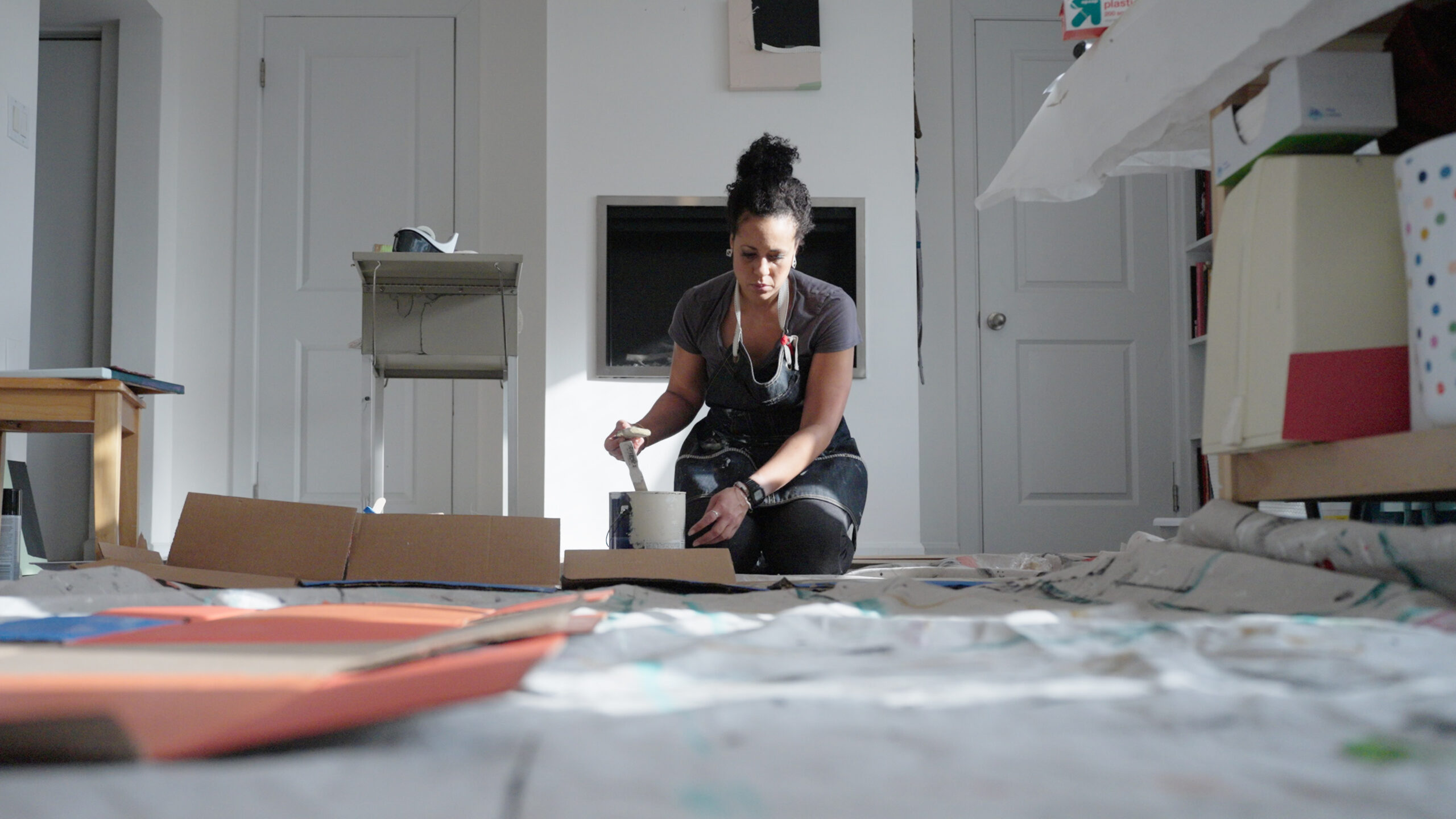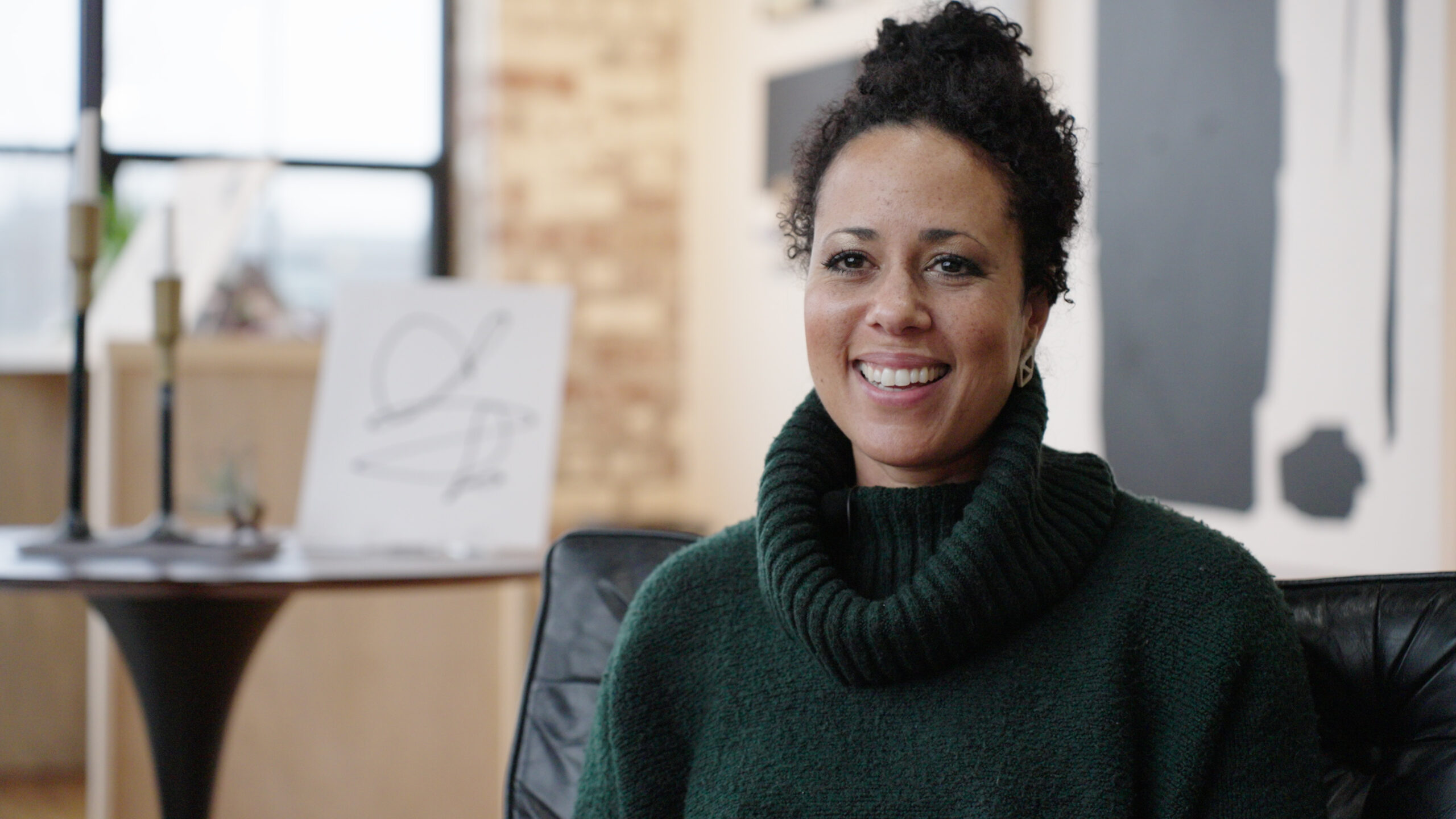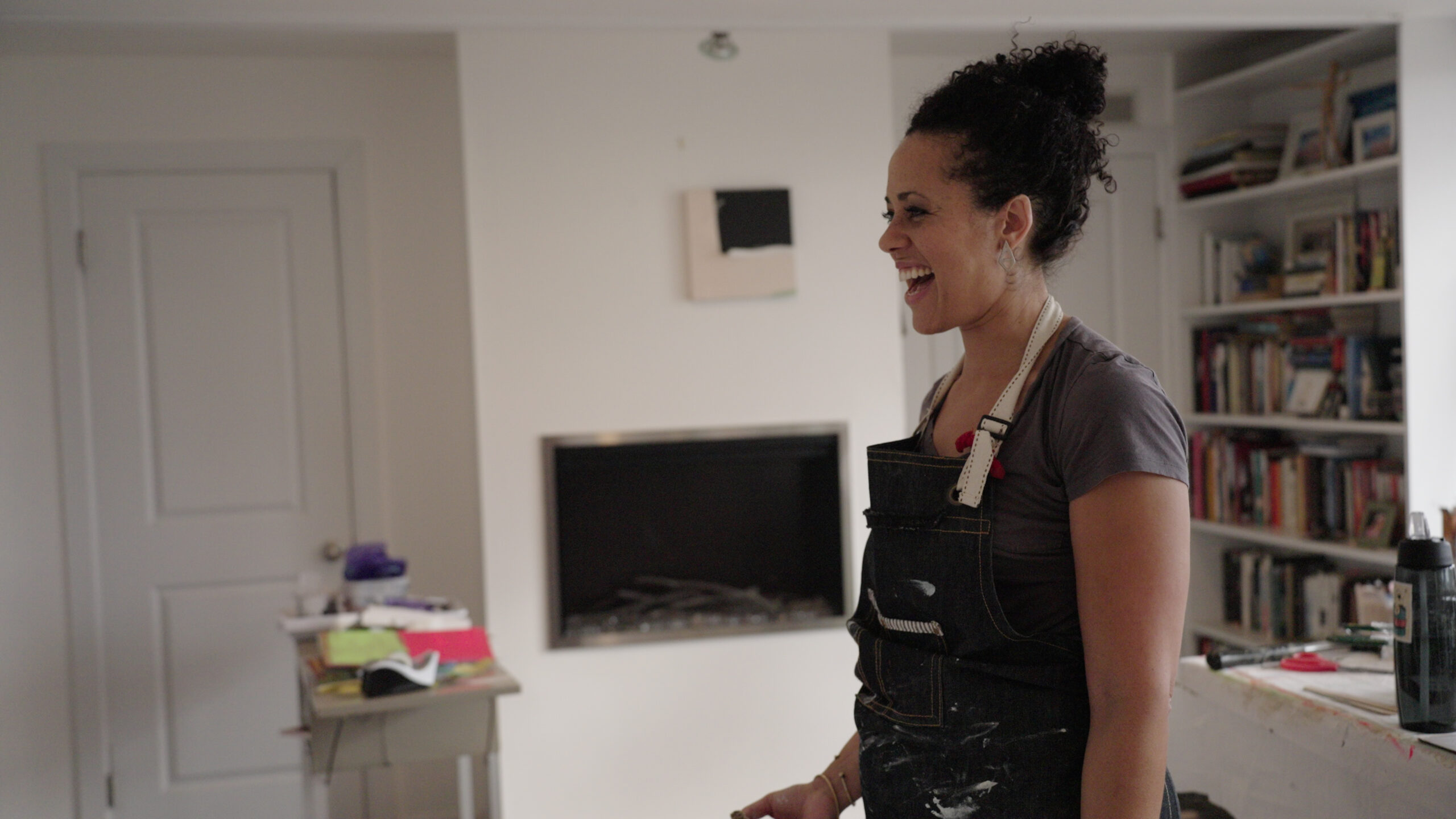Akwi Nji stands in front of her kitchen island in Cedar Rapids, Iowa, pressing her hands into the countertop. It is the summer of 2020, shortly after George Floyd was murdered in Minneapolis, and Nji feels a torrent of emotions bubbling up inside her like a boiling pot.
“My older daughter […] was like, ‘Mom, what are you going to do with this energy?’” Nji reflected.
In February 2020, Nji left her job to perform her hybrid of spoken word and personal storytelling around the country full-time. When the pandemic happened, her outlet for alchemizing emotions into art was put on indefinite hold. At first, Nji thought she would simply wait to get back on stage. But after George Floyd, it felt impossible to keep things bottled inside.
So, she looked to her hands.
“I remember looking down and thinking, ‘I’m not just a writer, I’m an artist. If I don’t feel like I can process these emotions through my head and my heart, I can process them through my hands.’”
Akwi Nji“I remember looking down and thinking, ‘I’m not just a writer, I’m an artist. If I don’t feel like I can process these emotions through my head and my heart, I can process them through my hands.’”

Since middle school, Nji says writing was a mechanism to process feelings and experiences around identity, race, relationships, place, and belonging. Shortly after college, at a time when she was struggling to find her voice, Nji joined Cedar Rapids’ SPT Theater. There, she translated those themes into live performances for over a decade.
But in 2020, Nji decided to “shut off the valve” on words and make space for an entirely different medium: painting and mixed media. “When George Floyd was murdered, that fundamentally changed my relationship with my own words,” she said.
For her first piece, Nji remembers choosing materials that she could deconstruct, rip, and tear.
“I [was] thinking to myself, ‘Okay, now how can I reconstruct? How can I reassemble in a way that optimizes trauma into triumph — a feeling of overcoming something?’”
Akwi Nji“I [was] thinking to myself, ‘Okay, now how can I reconstruct? How can I reassemble in a way that optimizes trauma into triumph — a feeling of overcoming something?’”
One work, “Consider Audience,” is part of a triptych that deals directly with her artistic transition, not only in medium, but in mindset.
“That phrase—‘consider audience’—has been consistent throughout my artistic life in Iowa,” Nji explained. “That means you have to remember they’re white, you have to remember we can’t offend them too much because we need their money.”
Nji made the decision to delete her electronic files of writing she’d done over the past 15 years, and destroyed most of the hard copies—turning some of the residue into art.
“I thought, how much of this writing is what I actually wanted to communicate, as opposed to a more diplomatic, less offensive version of what I wanted to say? I wanted to make a clear demarcation in my journey as an artist.”

Nji is still writing; her first book of poetry, Under These Here Stars, won the Iowa Book Prize. She continues to create occasional work for live audiences, though she says the end result looks profoundly different than it did before 2020. She’s currently working on pairing her poetry with music in a full-length production, and has released a short film combining soundscape and choreography about the ancient roots of human communication.
She has also been putting energy towards her online presence and creating what she calls “incubator experiences” for creatives of all experience levels.
“The one thing that has remained consistent [in my practice] is my devotion to the notion that everybody has a voice and it matters,” Nji says. “It’s not just about me and the work that I create. I intentionally try to develop a public image that inspires other people to create in their own unique way. That’s foundational to what I do.”
